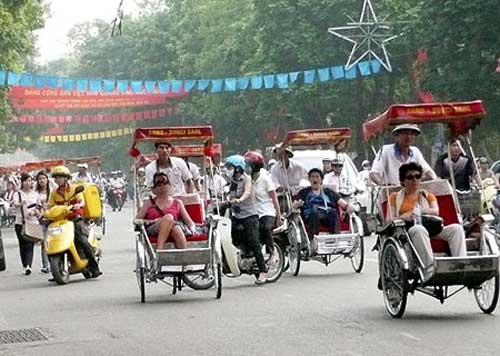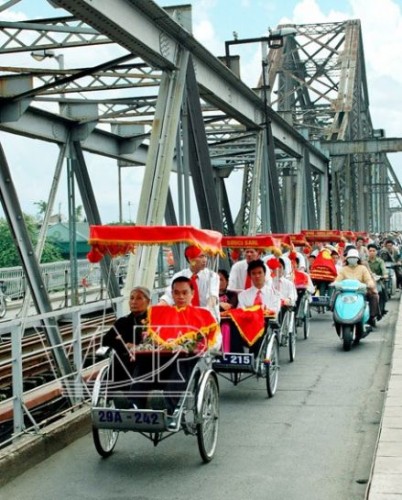The proposed ban of cyclos on the city streets of Hanoi is a denial of a tradition and part of a culture that has existed for many years, said one tourism expert.
Cyclos serve sightseeing tourists
Deputy Director of the Institute for Tourism Development Research, Pham Trung Luong, made his opposition to the ban public while speaking to a DTiNews reporter after local authorities made the recommendation of banning the vehicles in order to improve the traffic situation.
The plan has also stirred up public debate, with many suggesting that cyclos be confined to using particular roads instead of removing them altogether.
“If the problem is looked at strictly in terms of traffic management it may make sense, but if we take into account other factors, such as tourism, it is really not beneficial. Cyclos are a symbol of Hanoi culture and leave a strong impression on visitors. To take them off the streets would be unfortunate,” Luong commented.
He said that there are other options to improve traffic congestion, for example restricting cyclos to lanes or certain streets. “There are some streets in the Old Quarter where cyclos could remain and motorbikes be banned,” he added. He recommended that any policy be carefully assessed before a decision is made.
Cyclos familiar to Hanoians for years
An anonymous representative of a travel firm said cyclos add to tourism revenue. “Hanoi’s sidewalks lack space for pedestrians and can pose dangers. Cyclos are a safe and convenient means for tourists. They also offer opportunities in terms of sightseeing,” he said.
He referred to several countries in the world which have maintained their traditional means of transportation without problem.
Apart from their contributions to the tourism industry, cyclos have long been familiar to Hanoians, especially used by locals during wedding ceremonies.
Pham Quang Nghi, Secretary of the municipal Party Committee, said at a press conference on August 6 that the capital city always pays due attention to the preservation of its culture, saying, “Keeping our culture has always been a priority over economic development.”


